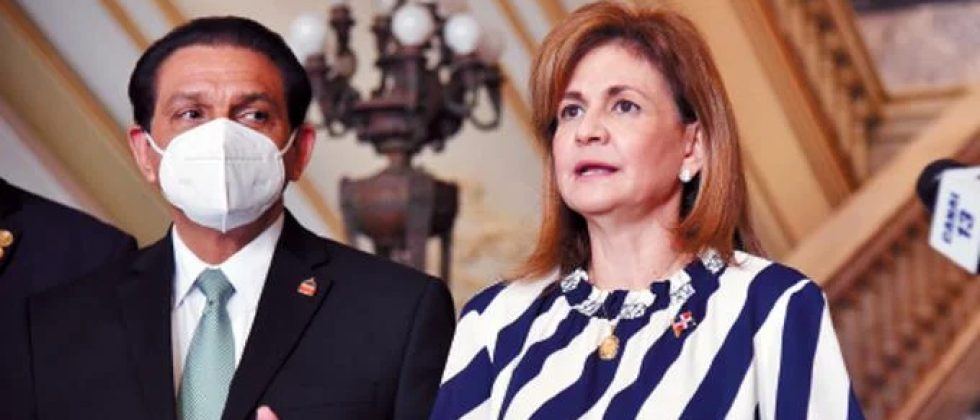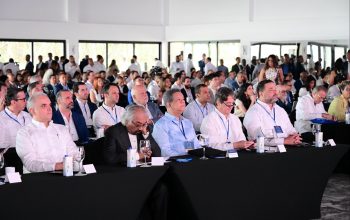news
“The Third Dose and the Voice of Science”, an article by Dr. Leonel Fernández
July 2, 2021
The announcement made by the government authorities that a third dose of the vaccine was needed to stop the spread of the Covid-19 virus in this country provoked surprise, amazement and uncertainty among the population.
It was understood that we were on the right track in the national vaccination process. Under the government´s leadership and the participation of various national sectors, it was believed that by the end of this year we would reach the desired goal of administering both doses of the vaccine to some eight million people.
However, all of a sudden and in a most unexpected manner, the unimaginable occurred. The two vaccine doses were no longer enough. Now we would need a third dose. The question we must ask ourselves is what is the reason for this change? Why should we have to receive a third dose, within a month´s time of the application of the first dose and, to top it all off, use another vaccine that was different from the one previously used?
Until now, the main argument discussed is that it would help reinforce the immunity of our citizens if new variants emerged, a possibility due to the continuous mutations the coronavirus has experienced. In light of the situation, one would have to ask other questions, such as: How do we know that by administering a third dose of the vaccine we will be able to safely face the new variants of the coronavirus? What specific cases, in those countries where the variants have appeared, indicate that a new dose of the vaccine has immunized the population? If this is true, then why has the United Kingdom, India, South Africa or Brazil, where the variants that have appeared due to the continuous mutations of the coronavirus have caused tremendous damage, a third, fourth or even fifth dose have not been applied.
The answers are simple. Because, the scientific studies that are being carried out by the pharmaceutical companies have not concluded, irrefutably indicating that the application of a new dose will be necessary, safe and an effective solution to the pandemic.
Currently, a group of experts from the United Kingdom have come together identifying themselves as the Joint Committee on Vaccination and Immunization. The group is carrying out studies to gather the data or information necessary as to whether or not the coverage of the vaccine drops after six months.
The pharmaceutical companies Pfizer and AstraZeneca are also carrying out studies and research to determine if, in regards to the variants, we will need a second generation of vaccines, adapted to the evolutionary reality of the virus.
Since there is no conclusive evidence yet, none of these institutions have dared to make inopportune recommendations that could, on the contrary, put at risk the health of the citizens they want to protect.
VACCINATION IN THE DOMINICAN REPUBLIC
In October 2020 the Dominican Republic originally contracted the purchase of 10 million units of vaccines. The contract was signed with the pharmaceutical company AstraZeneca. However, as has occurred in other countries, especially in Europe, the company did not meet the stipulated time for delivery of the units to our country.
As a matter of fact, eight months after the abovementioned contract was signed, we have only received 470,000 units.
But, the Dominican government contracted the purchase of 9.9 million units with Pfizer-BioNTech, of which, until now, only 436,000 have been delivered.
Even though at the international level there was conversation regarding the creation of a multilateral mechanism of cooperation and distribution for the vaccines, known as COVAX – under the guidance of the World Health Organization (WHO) – the truth of the matter is that, in practice, said program cannot be rightly labeled as successful. Out of a total of 436,000 vaccines that we should have received through this system, to date we have only received two shipments of 275,000 units.
To summarize, if the Dominican Republic would have depended only on the three outlets previously announced regarding the supply of the vaccines, eight months later – after the launching of their distribution at a global scale – it would only have received one million one hundred and eighty one thousand units. This number would have been absolutely insufficient to meet the demands of our population.
For this reason, the government had no other choice but to look for the only solution possible, all in the midst of very difficult circumstances. It contracted the Sinovac vaccine from China.
By virtue of the contract signed with the Asian nation, the Dominican Republic should receive overall 15.8 million units of the vaccine. Right now, with great diligence and efficiency from the Chinese pharmaceutical industry, our country has received 10.7 million. Pending are five million units.
As a result of the execution of the National Vaccination Plan, five million citizens have received the first dose of the vaccine; and 2.9 million have received both doses. In other words, 7.9 million doses have been applied to benefit our population.
THE VOICE OF SCIENCE
If the goal was to vaccinate our entire population, that is, the elderly, adults, adolescents and children, this would cover 11 million citizens. If both doses were applied, this would mean the need for 22 million units.
However, it is strange that, without having decided on the need for a third dose, the Dominican government ordered the purchase of 37 million units. What were they going to do with the 15 million remaining units purchased? Did the government exceed its expectations regarding the number of required vaccines?
Even in the case that a third dose for the entire population was agreed upon, some four million units of the vaccine would exceed the number actually needed. What were they planning to do with the excess number of units?
It is not clear. And even more confusing is the government´s insistence in accelerating the application of a third dose, in a short period of time, only a month after the first initial dose had been applied when, at the international level, the clinical trials are just starting regarding the duration of the immunity process, the need to apply reinforcements and the possibility of the exchange of vaccines.
When addressing the issue, the WHO and the PAHO have categorically explained that: “To date, there is no existing scientific evidence as to whether it is necessary to apply one or various doses of vaccine reinforcements after finalizing the existing model of two doses for each, and the time they should be applied; however, there is research currently being carried out that continue to monitor this issue.”
None of the two international health organizations deny the possibility that in the future it will be necessary to apply a third dose. That is possible, and it is not being denied. What they are trying to do is to make everyone understand that to immediately proceed with a third dose of the vaccine seems inopportune, risky and extemporaneous.
We believe it is wise to listen to this call for caution, to not get ahead of ourselves regarding possible upcoming events, but to wait for the results produced by the current research so that, in this manner, having the assurance of the viability and security of a possible vaccine, whether it be a second generation of vaccines or the application of a third dose.
But, in order to do this, the government must pay close attention to the results produced by science.






